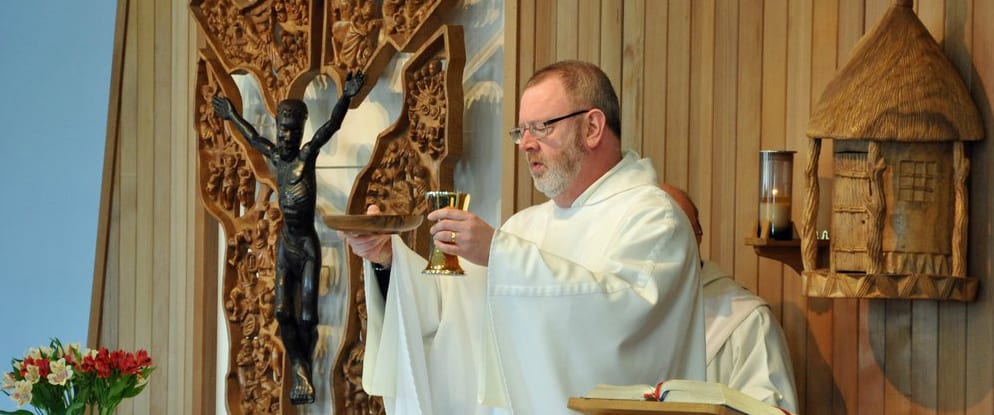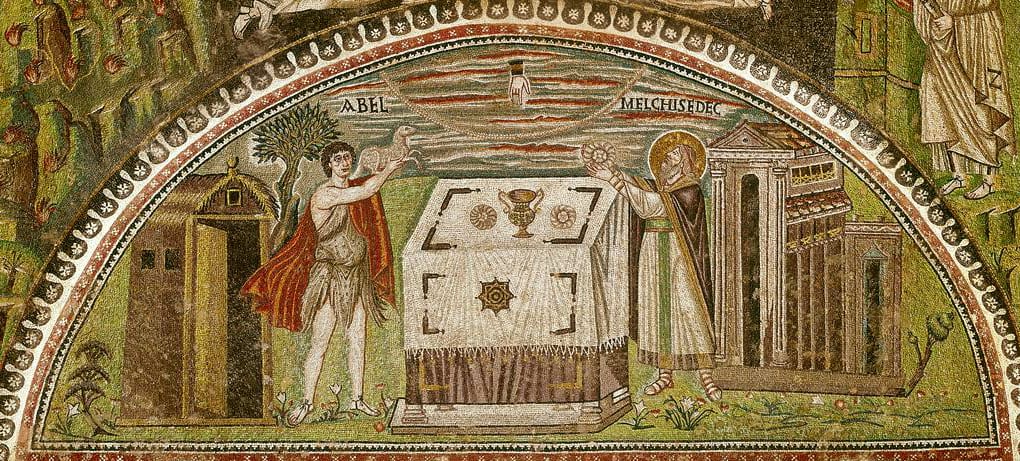Pope Leo XIV – Inaugural Mass Homily
Elected on May 8, 2025, as the 267th successor of St. Peter, Pope Leo XIV’...

Irenaeus here shows that the Church of the 2nd century regarded the Eucharist as a sacrifice which fulfilled the prophecy of Malachi 1:11 of a new, pure oblation and offering that would be offered by the gentiles all over the world.
The Lord taught the Church to make an offering throughout the whole world, and God accepts this as a pure sacrifice. It is not that God needs any oblation that we might offer, but that whoever offers something is glorified in the act of offering – if, that is, his gift is accepted.
Making a gift to a king shows our honor and loyalty to him – and it was because the Lord wanted us to make our offerings in all innocence and without ulterior motives that he said: When you are offering your gift at the altar, and you remember that your brother has something against you, leave your gift there at the altar. First go and be reconciled to your brother, and then come back and offer your gift.
We ought to offer to God the first fruits of his creation, as even Moses said: Do not come empty-handed into the presence of the Lord your God. Thus whatever we are grateful for, we can show our gratitude to God by gifts and receive back the honor that God can give us.

The new law does not abolish offerings. There were offerings under the old law and there are offerings now. Then, sacrifice was made by the people, now it is made by the Church. The only change is that the sacrifice is not now offered by slaves but by free men. The Lord remains one and the same – but an offering made by a slave is of a characteristic kind, and so too is an offering made by a free man: its nature is a sign of his free status.
With God, nothing is purposeless, or meaningless, or without a good reason. Thus under the old law they consecrated one tenth of their possessions, while those who have received their freedom set aside everything they have for the Lord’s use. They cheerfully and freely give more than the bare minimum because they have more than the bare minimum of hope. The poor widow put all that she possessed into the Temple treasury.
For we must make an offering to God, and show ourselves in every way grateful to him who made us – in purity of thought, in sincerity of faith, in fervent hope and burning love – as we offer the first fruits of the things he has created and that are his. This offering the Church makes alone to her creator, making it with gratitude from his creation.
For we are offering him the things that are his, preaching our fellowship and union and proclaiming the resurrection of body and soul. Just as bread that comes from the earth, once the words of consecration have been said, is no longer ordinary bread but becomes the Eucharist, made of two things, earthly and heavenly, so our bodies, receiving it, are no longer corruptible but have the hope of resurrection within them.
The above is an excerpt from St. Irenaeus’ classic second century work Against Heresies (Lib. 4, 18, 1-2, 4, 5: SC 100, 596-598, 606, 610-612). It treats the Eucharist as a sacrifice which fulfilled the prophecy of Malachi 1:11 of a new, pure oblation, and offering offered by the gentiles all over the world. It is used in the Roman Office of Readings for Saturday in the Second Week of Ordinary time. The accompanying biblical reading taken from Deuteronomy 16:1-17.
No Comments